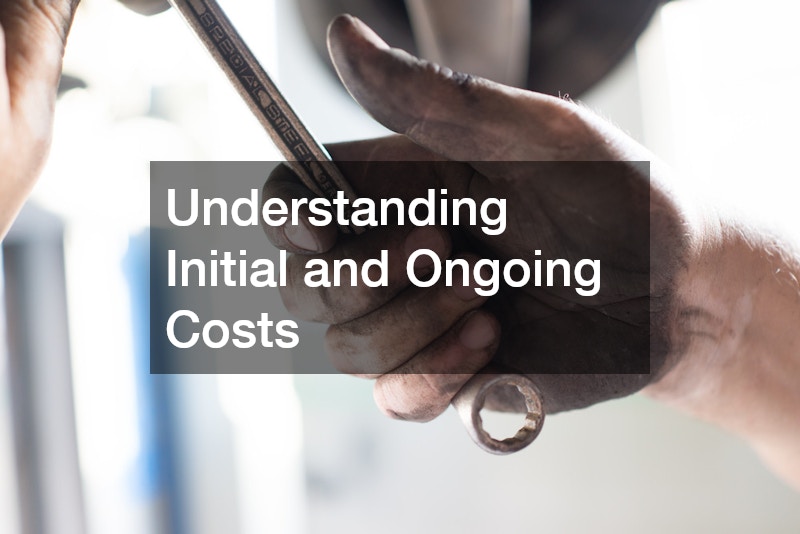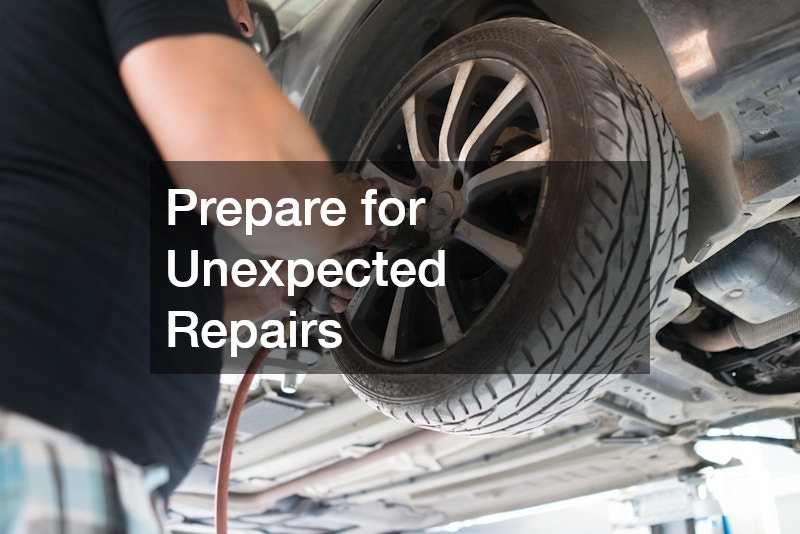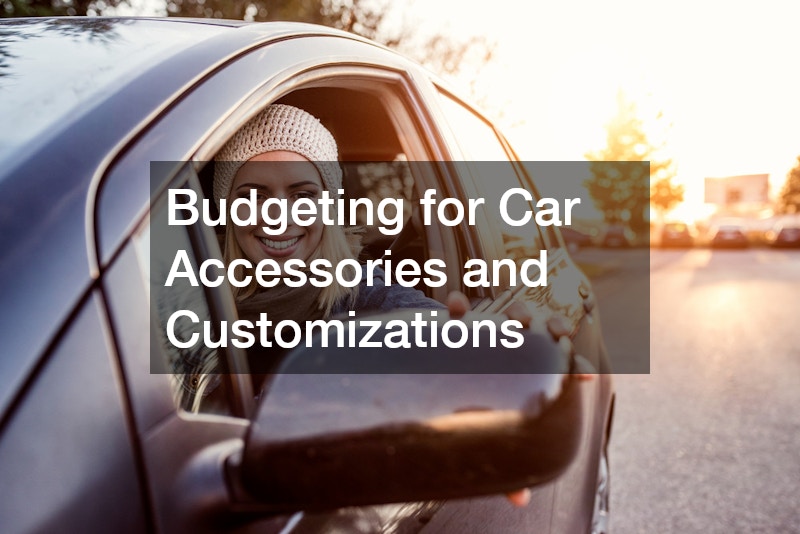
Owning a car comes with a sense of freedom, but it also comes with responsibilities and expenses that many first-time owners may not fully anticipate. Beyond the initial purchase, maintaining a car requires ongoing financial planning to ensure that you don’t run into trouble down the road, both literally and figuratively. In this expanded guide, we’ll break down the key spending and budgeting tips every new car owner should know, helping you navigate everything from routine maintenance to emergency repairs and optional upgrades. Whether you’re a seasoned driver or just purchased your first vehicle, understanding how to manage the costs associated with car ownership will give you peace of mind and keep your finances in check.
Understanding Initial and Ongoing Costs

Before you can effectively plan for car ownership, it’s crucial to understand the various expenses that come with it. These costs can be grouped into two main categories: initial costs and ongoing costs.
Initial Costs
The initial costs of car ownership include the price of the car itself, taxes, registration fees, and your first insurance premium. If you’ve financed your vehicle, monthly loan payments will be an additional expense. Depending on the terms of your loan and interest rate, car payments can significantly impact your budget, so it’s essential to account for this in your financial planning. On top of that, you may choose to invest in Jeep accessories or other vehicle-specific upgrades that personalize your car and enhance its functionality.
New car owners often overlook the importance of choosing the right insurance plan. In the event of an accident, your coverage will determine how much financial protection you have. It’s a good idea to review your policy carefully and ensure you’re not underinsured. Comprehensive coverage may cost more initially, but it can save you thousands in the long run if you’re involved in an accident or experience a major breakdown.
Ongoing Costs
Ongoing costs are where many new car owners run into financial challenges. These costs include regular maintenance, fuel, insurance renewals, and unexpected repairs. Over time, parts will wear down, and repairs will become necessary. For instance, regular transmission services can help extend the life of your vehicle’s transmission, but if a major problem arises, the cost to replace or repair it can be significant.
It’s important to anticipate these ongoing costs and set aside a portion of your monthly budget for maintenance and repairs. Regular check-ups, oil changes, tire rotations, and brake inspections should be part of your car care routine to avoid costly breakdowns.
Prioritize Routine Maintenance to Avoid Costly Repairs
Routine maintenance is critical for keeping your car in top condition and preventing expensive repairs down the line. A little proactive care can save you thousands of dollars over the life of your vehicle. Here are some essential maintenance tasks that new car owners should prioritize.
Tires
Your car’s tires are its only point of contact with the road, making them one of the most important aspects of vehicle safety. Regularly checking the air pressure and tread depth is essential for both safety and fuel efficiency. Uneven or low tire pressure can cause your car to consume more fuel and wear down faster. Visiting tire shops for routine inspections, rotations, and replacements will ensure your tires stay in good condition. Depending on how often and where you drive, tires may need replacing every three to five years, but regular maintenance can extend their lifespan.
Brakes
When it comes to safety, few things are more important than your car’s braking system. Worn-out brakes can not only endanger you and your passengers but also lead to more extensive damage to your car. Listening for squealing or grinding noises when you brake is an early indicator that you need to schedule brake repairs. Many new car owners delay brake maintenance, thinking it’s not urgent, but doing so can lead to more expensive repairs, such as rotor or caliper damage. Regular brake inspections and timely repairs should be a non-negotiable part of your vehicle care routine.
Heating and Cooling Systems
The heating and cooling systems in your vehicle are not just for comfort but also play a vital role in engine function. A poorly functioning cooling system can lead to engine overheating, which can cause irreparable damage. Similarly, a malfunctioning heating system can make driving in colder climates unbearable. Routine inspections of your heating and cooling systems help ensure they function correctly, especially during extreme weather conditions.
Transmission Services
Transmission repairs are one of the most expensive fixes you may encounter as a car owner, so it’s important to maintain your transmission to avoid breakdowns. Regular transmission services include fluid changes and inspections that can catch potential issues before they become major problems. If you notice any unusual noises, slipping gears, or a burning smell, it’s critical to have your transmission checked immediately. The sooner you address transmission issues, the less likely you are to face a costly repair or replacement.
Prepare for Unexpected Repairs

No matter how well you maintain your vehicle, unexpected repairs are part of car ownership. Planning for these repairs by setting aside a portion of your budget will prevent financial stress when something goes wrong.
Brake Repairs
As mentioned earlier, brakes are essential to your car’s safety. Brake pads, rotors, and calipers wear down over time and need replacing. While brake repairs are considered routine, it’s important to budget for them in advance. Depending on the make and model of your car, brake repairs can range from $150 to $500 per axle. Staying on top of your brake maintenance can prevent more severe issues and reduce overall costs.
Diesel Repairs
If you own a diesel vehicle, it’s important to be aware that diesel repairs can be more expensive than those for gasoline-powered cars. Diesel engines are known for their durability, but they also require specialized maintenance. From fuel system issues to exhaust repairs, diesel engines come with their own set of challenges, so it’s wise to budget accordingly. Having a reliable mechanic who specializes in diesel vehicles can help you avoid unnecessary expenses by ensuring proper care for your engine.
Heating System Repairs
Your vehicle’s heating system is often overlooked until something goes wrong. A malfunctioning heater can be uncomfortable in winter, but it can also indicate larger issues with your car’s engine cooling system. If your heater stops working, it’s important to have it inspected immediately to prevent more costly repairs. In some cases, issues with the heater can point to problems with the radiator or thermostat, both of which can be expensive to fix if left unchecked.
Optional Services That Add Value
In addition to routine maintenance and repairs, there are several optional services that can enhance your vehicle’s longevity, improve its aesthetics, and provide greater convenience. These services are worth considering as part of your overall car care plan.
Mobile Car Detailer
Keeping your car clean doesn’t just improve its appearance; it can also help preserve its value. A mobile car detailer offers the convenience of professional cleaning at your home or office, saving you time and hassle. Regular detailing protects your car’s paint, upholstery, and interior surfaces from damage caused by dirt, UV rays, and wear. Investing in detailing services once or twice a year can help you maintain the resale value of your car and extend the life of its interior and exterior materials.
Rent GPS Services
While many cars come equipped with built-in navigation systems, others do not. If you frequently travel to new places, renting GPS equipment can be a more cost-effective option than buying a navigation system outright. Rent GPS services are ideal for road trips or vacations, providing accurate and up-to-date maps without the need for an expensive device. By renting, you avoid the upfront cost and benefit from having the latest navigation technology at your fingertips.
Plan for Legal and Insurance Expenses
Aside from mechanical issues, car owners need to consider legal and insurance-related costs. These expenses can arise unexpectedly, but being financially prepared for them can save you from significant financial burden.
Car Accident Lawyer
Even with the best driving habits, accidents happen. If you’re involved in an accident, having access to a car accident lawyer can help you navigate the legal complexities of insurance claims and liability disputes. Legal fees can be expensive, especially if the accident involves significant damages or injuries. By setting aside some savings for potential legal fees, you can ensure you’re prepared in case the need arises. It’s also wise to review your insurance policy to understand what legal expenses, if any, are covered in your plan.
Maximizing Fuel Efficiency to Save Money
One of the biggest ongoing costs for any car owner is fuel. While you can’t control gas prices, you can take steps to improve your car’s fuel efficiency, saving you money at the pump.
Regular Tune-Ups
A well-maintained engine runs more efficiently, consuming less fuel. Regular tune-ups ensure that your car’s engine is functioning properly and that all parts are working together as they should. Changing your oil, replacing spark plugs, and cleaning the air filters can improve your vehicle’s performance and reduce fuel consumption.
Tire Maintenance
As mentioned earlier, properly maintained tires improve fuel efficiency. Keeping your tires properly inflated reduces rolling resistance, meaning your engine doesn’t have to work as hard to move the vehicle. Be sure to check your tire pressure regularly and visit tire shops for rotations and alignments to keep them in peak condition.
Efficient Driving Habits
The way you drive has a significant impact on your car’s fuel consumption. Avoiding rapid acceleration, maintaining a steady speed, and braking gently can improve your mileage. Using cruise control on highways helps maintain consistent speeds, which is more fuel-efficient than fluctuating your speed. Additionally, removing excess weight from your vehicle, such as unnecessary cargo, can improve fuel economy.
Budgeting for Car Accessories and Customizations

Personalizing your vehicle is a fun and exciting aspect of car ownership, but it’s essential to budget for these expenses. Accessories and customizations can enhance the look and performance of your car, but costs can add up quickly if you’re not careful.
Jeep Accessories
If you own a Jeep, you know that there are endless options for customization. From off-road tires and lift kits to roof racks and lighting upgrades, Jeep accessories can transform your vehicle into a rugged adventure machine. However, these upgrades can be pricey, so it’s important to prioritize the most essential accessories based on your driving habits and needs. For example, if you frequently take your Jeep off-road, investing in all-terrain tires and skid plates might be a priority. On the other hand, if you primarily use your Jeep for daily commuting, aesthetic upgrades like custom bumpers or LED headlights might take precedence.
By setting a budget for accessories and spreading out your purchases over time, you can customize your vehicle without overspending.
Planning for Long-Term Expenses

As a car owner, you need to think beyond immediate maintenance and repairs. Some long-term expenses can catch you off guard if you’re not prepared. Here are a few significant costs to plan for over the lifetime of your vehicle.
Garage Door Repairs
If you park your car in a garage, maintaining the garage door is critical to both your car’s safety and your home’s security. Garage door repairs can range from simple fixes like realigning sensors to more complex problems such as replacing the motor or springs. A malfunctioning garage door can damage your car or lead to theft, so it’s essential to ensure it’s in good working order. Budgeting for these repairs ahead of time ensures that you won’t be caught off guard if something breaks.
Transmission Overhauls
While regular transmission services can help extend the life of your car’s transmission, major repairs or replacements may eventually be necessary as your vehicle ages. A transmission overhaul is one of the most expensive car repairs, so it’s important to plan ahead and start saving early. Addressing minor transmission issues as soon as they arise can prevent the need for a full replacement, but setting aside money for potential long-term repairs is a smart financial move.
Owning a car is a long-term financial commitment, but with proper planning and budgeting, you can enjoy the freedom of the road without breaking the bank. Start by understanding both the initial and ongoing costs of car ownership, and set a budget for routine maintenance, unexpected repairs, and optional services like a mobile car detailer or rent GPS equipment. Prioritize critical services such as brake repairs, diesel repairs, and transmission services to keep your car in excellent working condition.
In addition, consider long-term expenses like garage door repairs and upgrades like Jeep accessories as part of your overall car ownership budget. By staying proactive and financially prepared, you can avoid stress and enjoy the full benefits of owning a car for many years to come.



